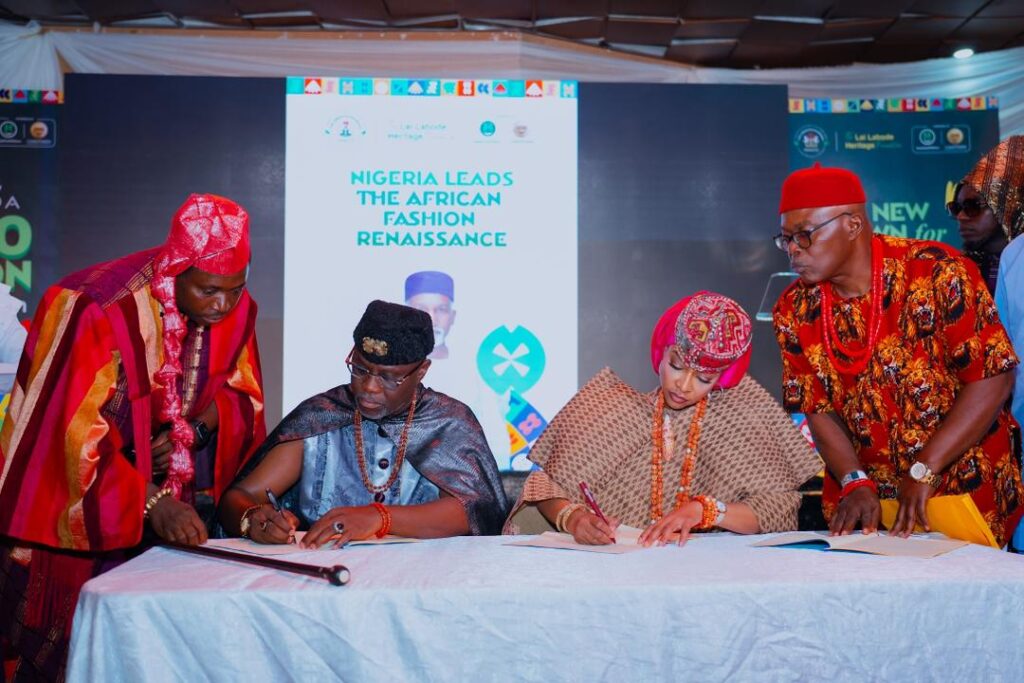The Confederation of African Fashion (CAFA) has unveiled an ambitious plan to expand Africa’s fashion economy from its current $30 billion valuation to $500 billion, through strategic investment, industrial development, and creative enterprise.
The Federal Government of Nigeria has endorsed the initiative, announcing the establishment of the Nigerian Fashion Federation, designed to promote local fashion and align with CAFA’s continental framework.
Speaking at a world press conference on the adoption of the Afroliganza Vision in Abuja, the Minister of Art, Culture, and the Creative Economy, Hannatu Musawa, reaffirmed Nigeria’s commitment to placing culture, fashion, and heritage at the center of its engagement with Africa and the global community.
“The African Fashion Renaissance, known as Afroliganza, is a continental vision pioneered by the Lai Labode Heritage Foundation to unite African nations through fashion, culture, and creative enterprise,” Musawa said.
“Afroliganza seeks to build a structured, values-driven fashion economy rooted in African heritage, led by African institutions, and positioned for global impact.”
She explained that the initiative aims to institutionalize African creativity through policy, diplomacy, trade, and public celebration, creating sustainable frameworks that empower designers, artisans, producers, and storytellers across the continent.
According to the minister, Nigeria’s adoption of the Afroliganza Vision reflects a national commitment to elevating the creative economy and strengthening its cultural diplomacy.
“Nigeria is not only adopting Afroliganza but leading it. As the first country to sign the CAFA Charter, we are transforming commitment into action through institutions, policies, and programmes that translate vision into measurable outcomes,” she stated.
CAFA, established as a continental coordinating body, seeks to unify Africa’s diverse and fragmented fashion industries under one cooperative framework. It serves as the principal platform for fashion diplomacy, trade integration, and creative policy alignment across African nations.
The confederation’s objectives include growing the fashion economy through structured investment and industrial capacity building, establishing continental standards for intellectual property protection, and organizing flagship events such as the African Global Fashion Games to showcase the continent’s creativity and unity.
With Africa’s youthful population, rising global demand for African fashion, and expanding creative talent, stakeholders believe CAFA’s initiative will reposition the continent as a global fashion powerhouse and a catalyst for inclusive economic growth.















